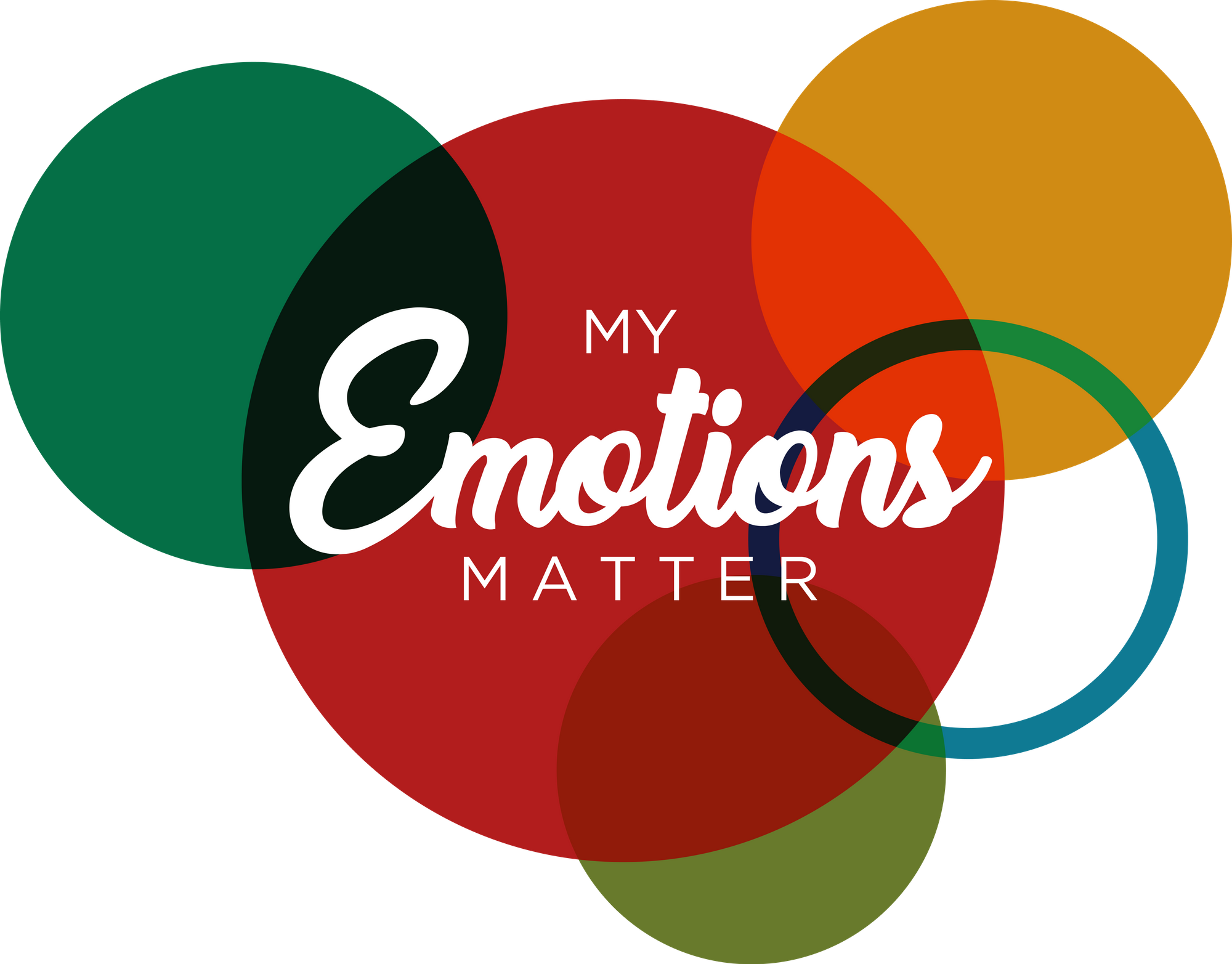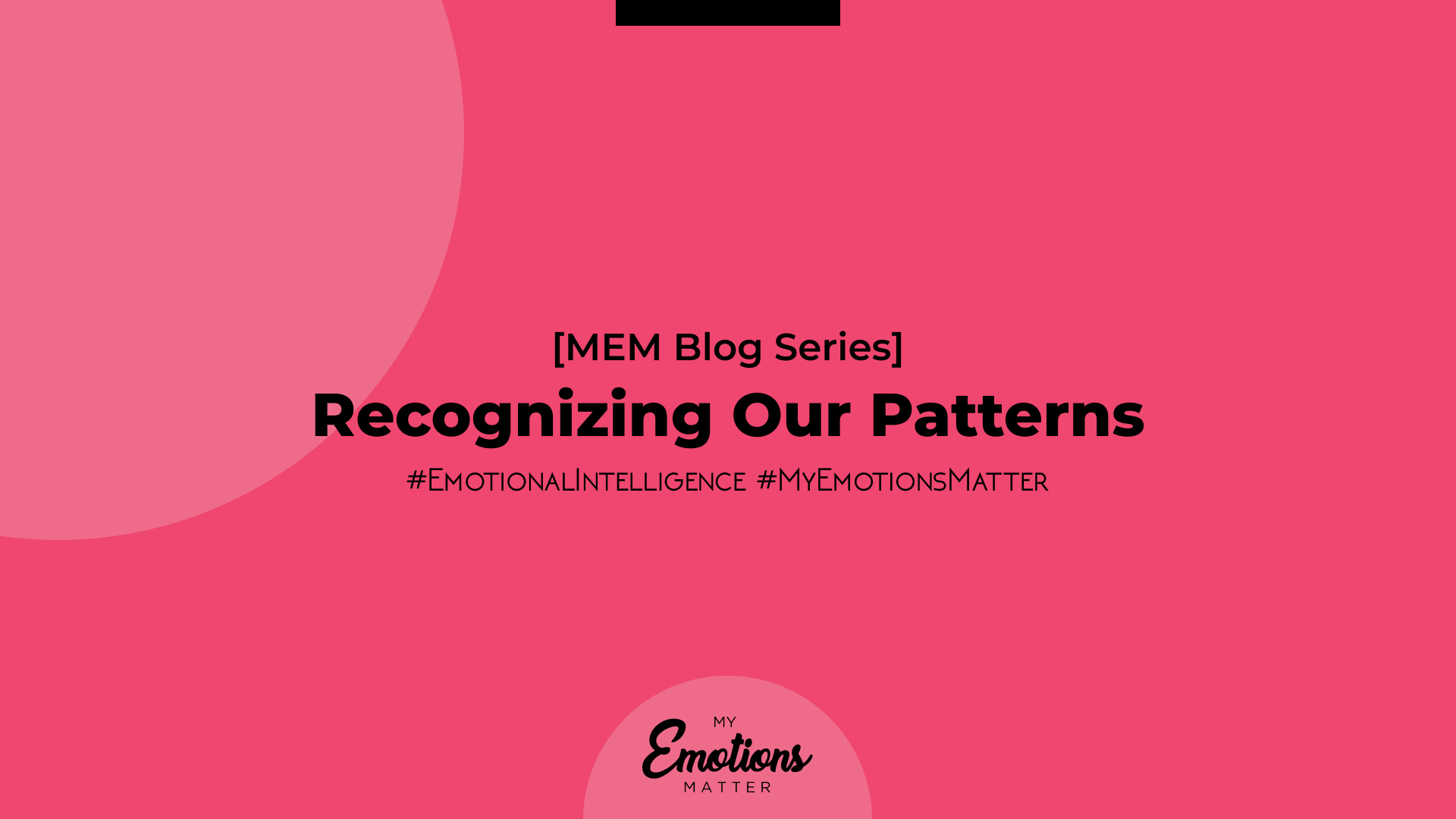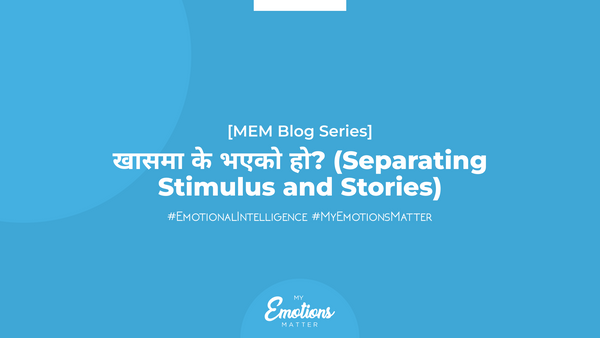Recognizing Our Patterns
Have there been times when someone has said or done something and you could predict it? Alternatively, have there been times when you said or did something you wanted to change but it happened again? Human beings are creatures of habit. And these habits aren’t just about what we do, it is also about the way we think and feel in certain scenarios. These emotional habits are frequently recurring patterns and reactions.
'Recognizing Patterns' is one of the core competencies of self-awareness. Recognizing our patterns means knowing our frequently occurring emotional experiences, reactions, and go-to behavioral patterns.
Now you may be wondering why we need to know our patterns. Aren't reactions and behaviors natural? Aren't we just supposed to go with the flow? Well, we always have the choice to ignore thinking about our emotional and behavioral patterns. But a problem with doing so is that all of our actions can become automatic and not necessarily healthy ones. Without paying due attention to our recurring patterns, we are likely to make automated and generalized responses that may not be the best for us in a given situation.
A lack of awareness about our patterns can impact the people around us negatively as well. For example, let's say I have a habit of talking in a loud voice when I am with my family because that is how I think they will listen. If I am unaware that this pattern may not be natural or acceptable in contexts outside of the home, I may end up talking to my friends and colleagues in a loud voice as well, thinking that it's normal, but they might not appreciate it.
When we recognize our actions and reactions better, only then do we know how to manage them. A good tool for us to understand our recurring patterns can be the 'Think-Feel-Act' Cycle. Let's look into an example to understand this better. For a moment, I invite you to assume that you have a recurring pattern of putting off doing your tasks.
Think: What sorts of thoughts might you have in this situation?
Let's say some of them could be: "Not again!" "I can come back to this later." "I'll watch some Netflix for 30 minutes first." "I have plenty of time."
Feel: How might you feel?
You might feel relaxed initially that you don't have to do your tasks immediately.
Act: How might you act in this situation?
When you realize you still have time in your hands, you might start binging on some Netflix show.
But, oh, there are still some tasks pending. So what happens next? The cycle will start again. So, let's say you watched some Netflix show (obviously for more than half an hour).
Think: What sorts of thoughts will you have now?
"I shouldn't have put off doing my tasks." "I just have two hours to the deadline." "Man, I am late again!"
Feel: How would you feel now?
You would probably feel guilty, regretful, or even frustrated for being late for submitting your task yet again.
Act: What will you do?
You might rush through the tasks and manage to submit them just in time or miss the deadline- yet again.
Given that you barely managed to submit your tasks on time, you might again have thoughts like, "I can never complete my work on time." "I'm a loser." "The assignments aren't so long anyway, so why should I spend more time reading or researching." And, the cycle goes on. But, when you become aware of this cycle, you can inform yourself that it's not helpful to start doing your assignments just 1-2 hours before the deadline. You might need to buy some more time, perhaps break down the work into several days throughout the week, so that you don't feel anxious and rushed at the last moment.
Whether or not we are aware of them, our everyday reactions are turning into habits that might or might not be helpful for us. Turning a blind eye toward them would mean living automatic and helpless lives. Knowing those patterns would mean understanding what we're doing well and what we aren't and taking steps toward managing ourselves better. As the saying goes, “If you are aware of your pattern, you can change the pattern. Or else, you become the pattern.”




